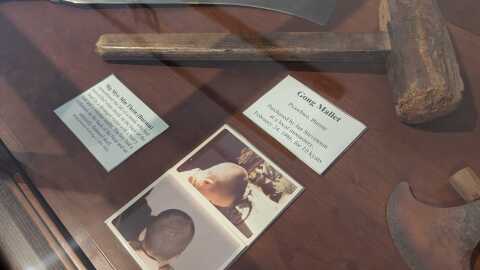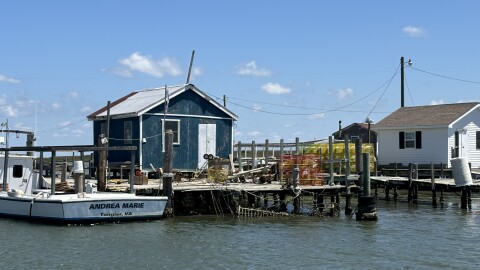Why is the additive, safely used since the 1930s, being questioned again?
-
It could be the next big advance in treating diseases.
-
Groundhog Day is a “cross-quarter day” on the celestial calendar. Cross quarter days are mid-way points between the Solstices and Equinoxes. These days are associated with many familiar holidays whose astronomical roots have largely been forgotten.
-
For nearly 60 years, this office has explored the nature of consciousness.
-
Partner company hopes to have the project up and running by the 2030s.
-
A panel of experts could determine if “pattern of misconduct” occurred.
-
An ongoing review of a former state crime lab analyst’s work uncovered the error.
-
Former Science Museum of Virginia scientist captures Greek family recipes in new cookbook.
-
Early in life, the protein Reelin helps assemble the brain. Later on, it appears to protect the organ from Alzheimer's and other threats to memory and thinking.
-
Head of Harrison Family Translational Research Center discusses advances in treatment.
-
The island's lost two-thirds of its land mass since 1850 and climate change is making the problem worse.
-
You know how they say you are what you eat? Well, as far as breastfeeding goes, it might also be appropriate to say "you are when you eat." Researchers just looked into how this biological process may play a big role in how babies develop their day/night cycles. Does breast milk impact our circadian rhythm?
-
Meet the brilliant minds throughout history, from Galileo to Edwin Hubble, responsible for creating the telescope. Today, their invention allows humanity to reach the furthest limits of seeing – 13 billion light-years out.
-
Entomologist Dr. Art Evans and VPM producer Steve Clark talk about their experiences with dobsonflies and about the natural history of these impressive insects.
-
The Virginia Department of Health is warning against swimming in certain areas at Lake Anna due to increased algae blooms. According to the Environmental Working Group, algae blooms have erupted in hundreds of lakes nationwide.
-
Are we alone in the universe? A pretty huge age old question that science has been piecing together bit by bit over the years. There are smart men and women working towards this answer every single day using a myriad of different approaches.
-
The Virginia Department of Health has updated its advisories on harmful bacteria after two new sites were discovered at Lake Anna. The upper and Middle…
-
When electricity creates a magnetic field, it can do all kinds of things: move the clapper in your doorbell to make it ring, turn the motor in your electric car, even make the inside of your body visible to doctors when you are sick or injured.
-
Does your child have a magnetic personality? Or maybe they just like to play with the magnets on the fridge? These little items do a lot more than hold up your grocery list—they’re a great way to show kids how magical science can be! Watch their faces light up the first time they see a magnet instantly attract an object, or when they see two magnets “dance” to avoid each other.
-
Unlike the magnets on your fridge, electromagnets have a magnetic field that runs on electricity. When you break the circuit, just like turning off a light switch, the magnetic properties disappear.
-
Entomologist Dr. Art Evans and WCVE producer Steve Clark discuss the results of Art's Virginia Weevil Project working with Bob Anderson of the Canadian Museum of Nature. Among other discoveries, it appears at least one weevil species found is new to science.





















